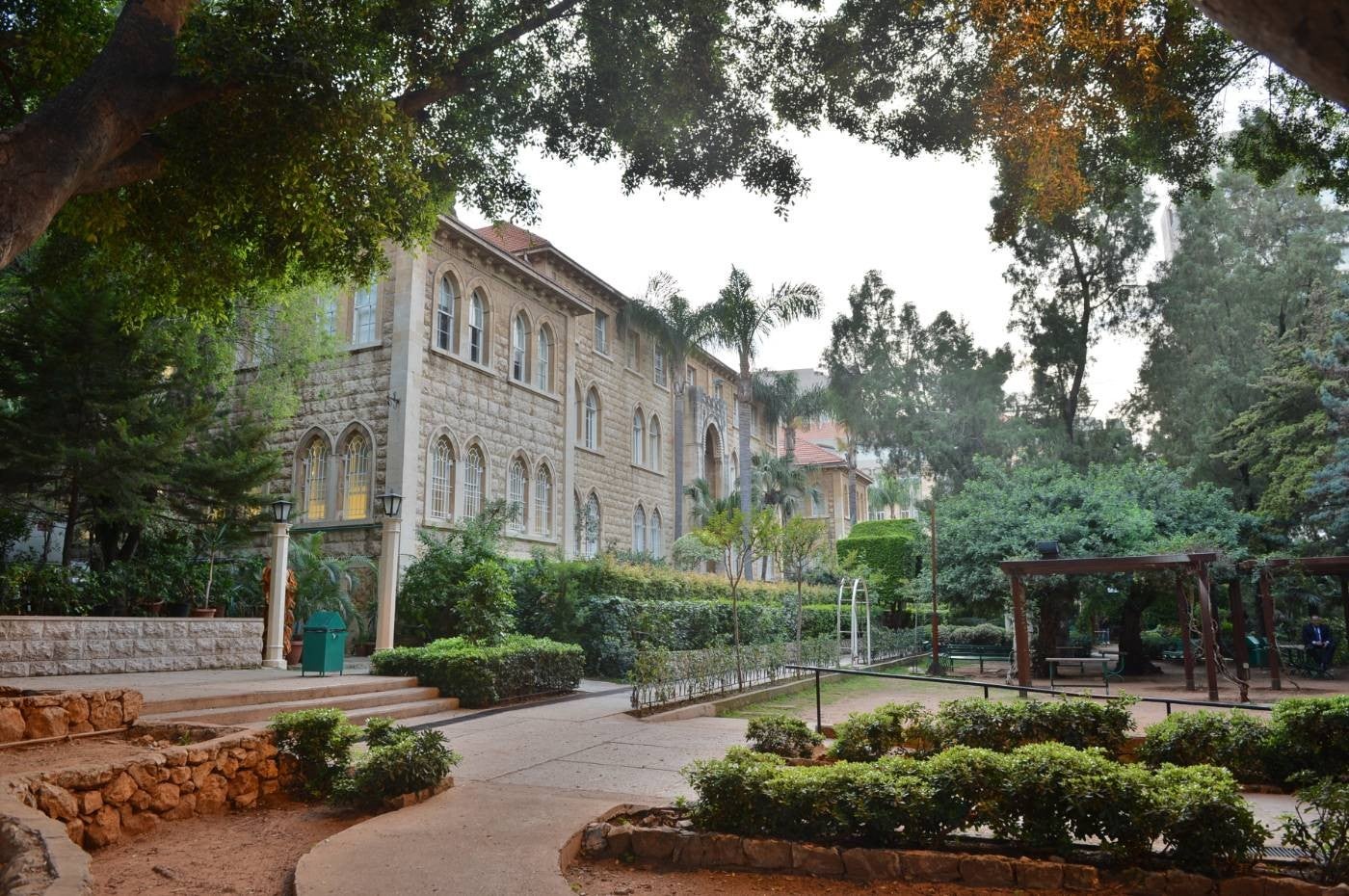
Nearly 7,000 miles away, business students at Lebanese American University (LAU) in Beirut are identifying issues that are foreign on many levels, such as traffic and car accidents occurring in the Boise area. Meanwhile, Boise State students are tackling Lebanon-related issues like the country’s lack of educational access for its people.
This Boise-Beirut connection is due to an innovative virtual exchange program funded by the U.S. Embassy in Lebanon. After meeting through Boise State’s Center for Global Education, Christy Suciu, a lecturer in the management department at Boise State, and Jordan Srour, an associate professor of operations management at LAU, designed the course to offer real-world, cross-cultural opportunities for its students while fulfilling their respective university’s emphasis on innovation and global impact. The pilot course started in August 2021 and includes 47 undergraduate business students from Boise State and 24 undergraduate students from LAU spanning majors in business, economics, computer science and electrical engineering.
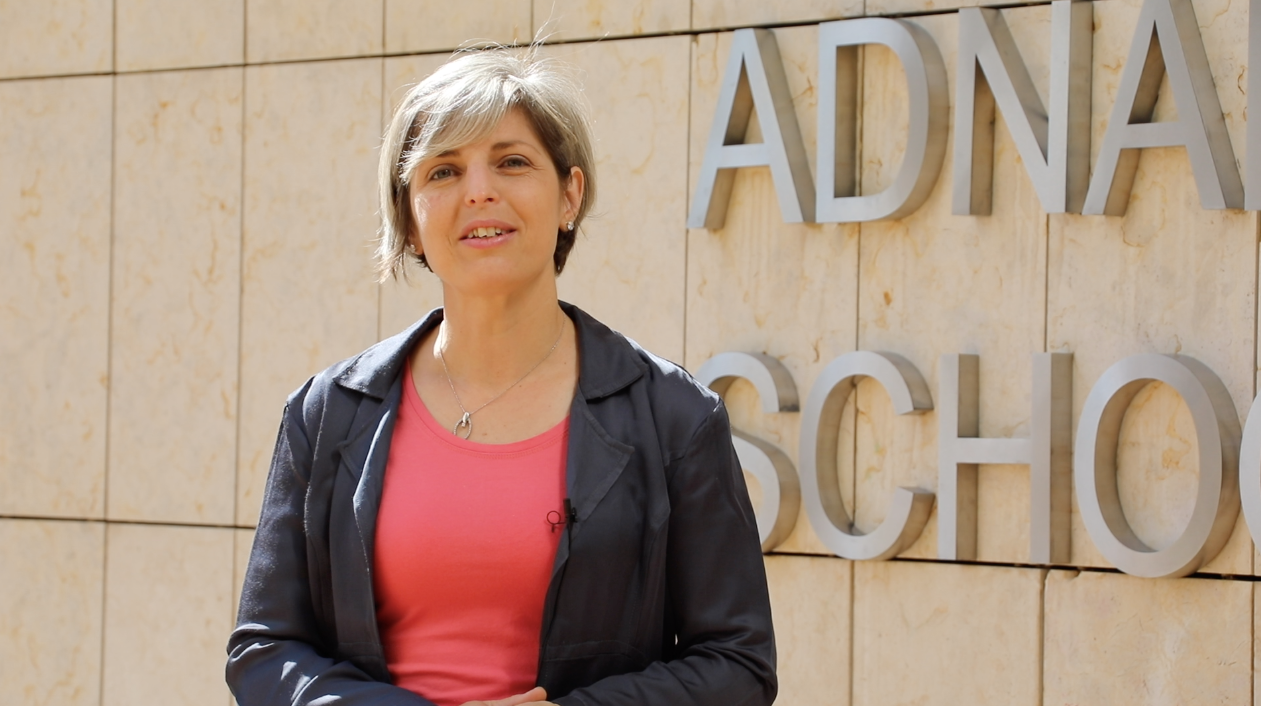
“This project truly embraces the ideal of a university without borders,” said Srour from her home in Beirut. “I love the fact that we partnered with Boise State and not a school in a well-known location like New York or California. It is so important for our students to learn that global is an all encompassing word – not just reserved for the world’s major cities.”
Creating global solutions that matter
The two classes formed teams mixing U.S. and Lebanese students. Through an educational video app called Flipgrid, teams collaborate and submit videos as assignment deliverables where they discuss their research and solutions, and interact with other teams’ ideas.
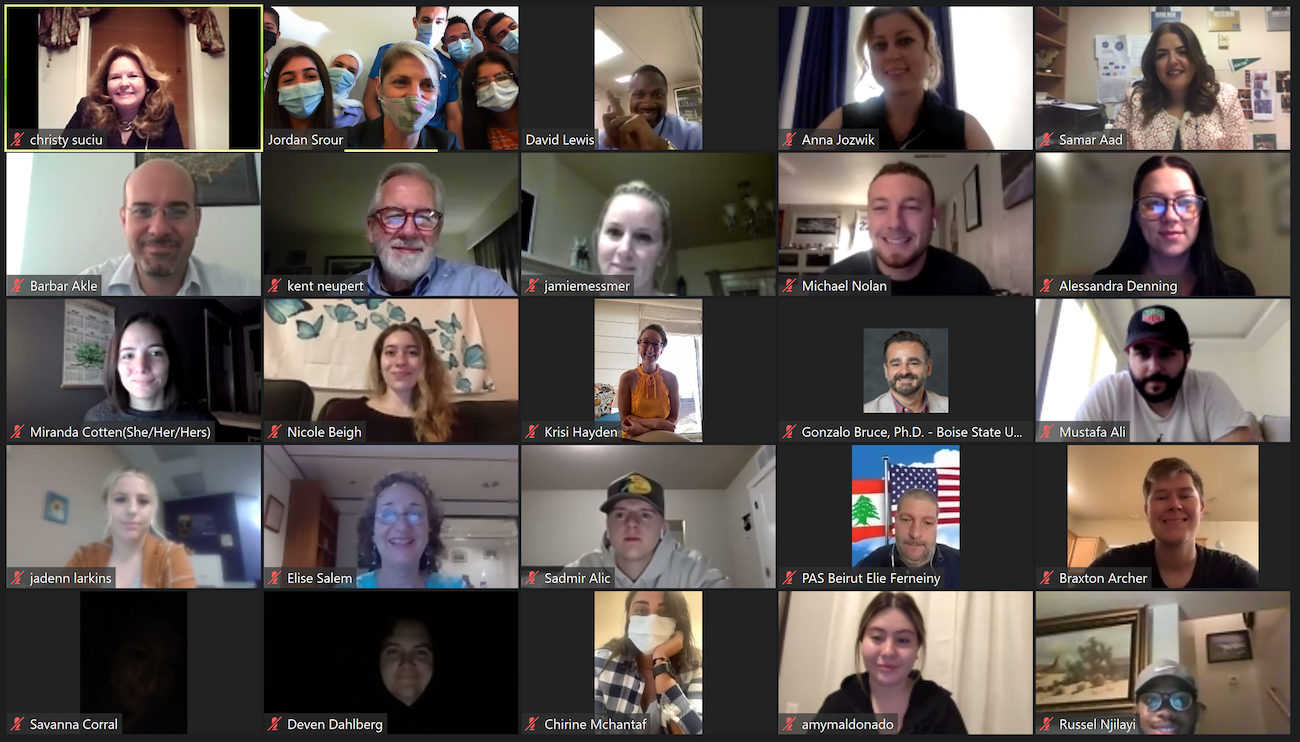
One team – which examined Boise’s traffic and car accidents – suggested the implementation of a vehicle-to-infrastructure (V2I) communication system that they found has worked well in less-populated states like Wyoming. The V2I system enhances the wireless exchange of data between vehicles and road infrastructure. The app determines the likelihood of crashes occurring in specific areas, traffic jams, sharp curves and the recommended speeds in different cities.
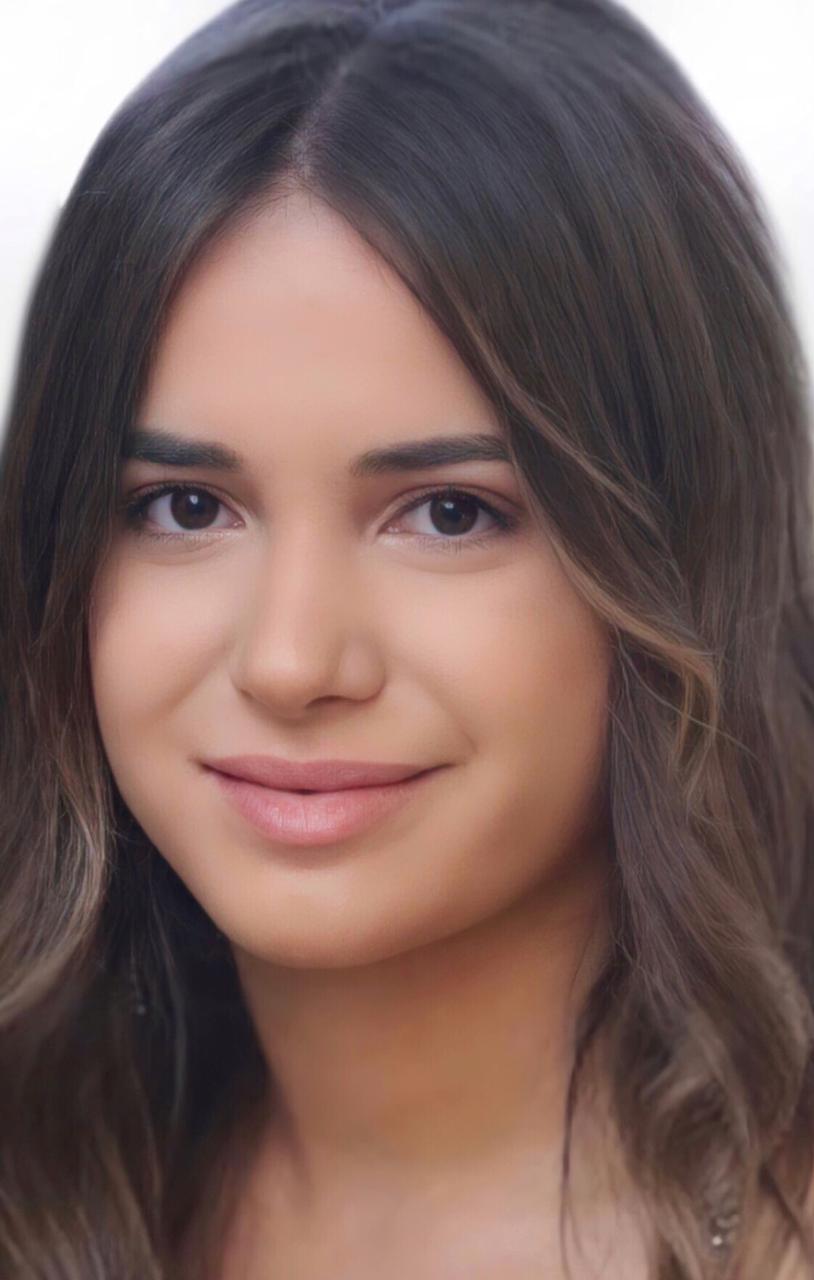
“Working with people from various cultural backgrounds, societal values and ethnical norms results in the objectivity of ideas and the authenticity of the proposed solutions,” said Patricia Balayan, a LAU student majoring in banking and finance with a minor in data analytics. “We might be subject to biased ideas given the circumstances of our upbringing as individuals, however, once a fellow partner from Boise suggests an [out there] idea, we might realize that this idea could flourish in the Lebanese market and vice versa. Empathizing with others’ needs is another crucial skill, which comes as a result of cross-cultural collaboration.”
Students like Balayan and Michael Nolan, a Boise State business administration major who will graduate this December, are understanding the many underlying issues for solving international problems by working with people from other cultures who experience different sets of living conditions and constraints, according to Suciu. Inflation, infrastructure, wildfires, portable water, lack of electricity and fuel, and unsanitary conditions are frequent topics that are discussed. Both Idaho and Lebanon experience wildfires – one team ideated “fire poles” that have embedded sensor technology and sprinklers to allow for simultaneous alerting and mitigation.
“Some problems are very similar and some are very different, allowing our students to empathize with each other and grow,” Suciu commented.
Meanwhile, Nolan’s team looked at improving educational access throughout Lebanon as part of their “UN Sustainable Goal” project within the course. They brainstormed the idea of an online educational platform that can reach kids and adults not only in Lebanon, but from all over the world via an accessible platform. The platform includes basic curriculums, as well as ones that emphasize possible neglected skills like communication, negotiation and interviewing.
Other solutions are created outside of the scope of the class through sheer inspiration. After learning more from their fellow classmates abroad, one LAU student independently worked on a way for Boise State students to safely return to in-person learning. They developed an app using the Boise State University logo and brand that allows students to select a location on campus and then identify the route that takes them through the least crowded and most recently cleaned areas to ensure their safety.
A space to share hardships for a purpose
Along with the nine-hour time difference and language barriers, students from each country have been able to share other daily issues and support each other throughout the semester. Frequent peer assessments have illustrated that students feel empowered by this experience.
“We don’t have consistent electricity, the economy is in free fall, and unemployment rates are skyrocketing,” Srour said. “Working with students from Idaho has given the Lebanese students a space to share the hardships they are going through for a purpose. The act of collaboratively turning those difficulties into co-created, innovative solutions is very empowering.”
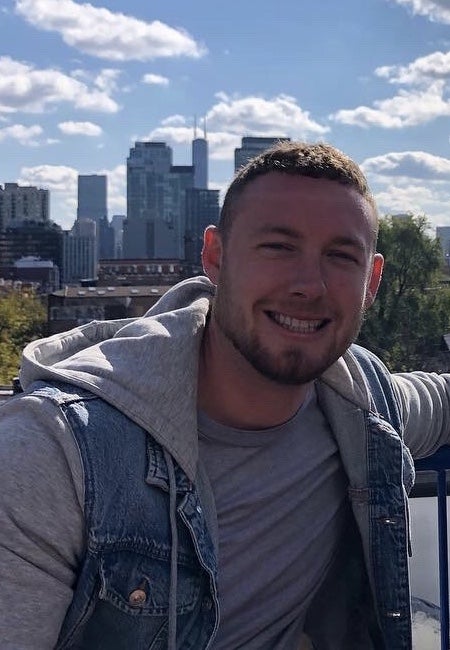
Srour believes one of the many benefits of this collaboration is how both groups of students are becoming much more than just classmates, sharing pictures of their own homes and environments as they try to define what the problems are in the first place.
“I knew little to nothing about Beirut before this class,” said Nolan. “As I got to know my [LAU] course partner, I was able to put myself in her shoes and better understand the day-to-day struggles and challenges they face.”
Developing students for a globalized world
Suciu and Srour are passionate about preparing their students for global collaboration regardless of whether they jump into international business careers. Because of the obstacles that often get in the way when working with people from halfway around the world within different cultural contexts, Srour believes it teaches something no textbook can: how to listen.
“A major strength of this class is in conveying the fundamentals of what it is to be a human with a problem that needs solving,” she said. “Watching my students work on their projects has helped me learn how they view the world and what the term ‘global issue’ means in the first place.”
The process of identifying and solving problems is challenging, yet the excitement of creating innovative solutions with people from around the world is overwhelming.
“I am absolutely amazed with Boise State’s commitment to innovation,” Srour said. “I know that the school ranks in the top 50 for innovation, but I truly see it in the spirit of all the staff, faculty and administrators who worked to make this dream a reality.”
The professors are hopeful that the universities and the U.S. Embassy continue to provide the necessary resources and funding to advance the program into the future. They’re also looking at incorporating additional components like virtual language training for Arabic and English that’s led by the students themselves.
“The teamwork and communication skills gained from this course are extremely valuable as we near the point in our lives where we will have to use these skills in our careers,” Nolan said. “I highly encourage Boise State and LAU to continue this course collaboration from here on out!”